11. Examine the implications of cloning for the human race.
by 09S38 NG SI MIN PAMELA


1. The Roman Catholic Church, under the papacy of Benedict XVI, has condemned the practice of human cloning, in the magisterial instruction Dignitas Personae, stating that it represents a "grave offense to the dignity of that person as well as to the fundamental equality of all people".
2. In 1997, a sheep named Dolly was supposedly cloned, making her the first "artificial" mammal on Earth. This event raised a large number of legal and ethical issues involving the technology, and caused some people to wonder about the merits of biotechnology as a whole.
2.1. When cloning technology was first proposed, many scientists had visions of vast herds of genetically identical livestock, selected and cloned for meat quality and disease resistance
3. ethical issues
3.1. Playing God- Do humans have the right to create life artificially?
3.2. Cloning runs counter to the evolutionary need to maintain a basic level of genetic diversity, and the variety God has created in nature
3.3. Rich people are the ones most likely to have clones, possibly to harvest their organs should theirs fail, simply because they are able to afford it. But what about the poor? Are they denied the chance to have clones to replace their organs? But then again, the idea of having clones is unethical and this disrupts the balance in nature.
3.4. On December 12, 2001, the United Nations General Assembly began elaborating an international convention against the reproductive cloning of humans. A broad coalition of States, including Spain, Italy, Philippines, the United States, Costa Rica and the Holy See sought to extend the debate to ban all forms of human cloning, noting that, in their view, therapeutic human cloning violates human dignity
3.5. Cloning may lead to eugenics, which is the artificial manipulation and control of the characteristics of people. An American geneticist, Dr. Dan Brocj, has identified a trend towards eugenics that is perpetuated by developments in biotechnology. When people are able to clone themselves, they will be able to choose which type of person shall be born.
4. introduction
5. Adverse effect on genetic diversity
5.1. Cloning will produce identical humans, all susceptible to the same diseases and pests. Therefore, an epidemic of a disease to which they have low resistance could decimate the entire population, rather than just the susceptible individuals.
5.1.1. lowering the disease resistance of the human population as a whole
6. Beneficial breakthroughs in medical field
6.1. Cloning organs or body parts for therapeutic medical purposes is an ethical use of cloning and could improve the lives of millions of people.
6.2. Conditions like Parkinson’s, diabetes and Alzheimer’s may also be cured with this technology.
6.3. One of the greatest human cloning benefits could be resolution of the problem of infertility.
6.4. People on an average carry 8 defective genes and these genes cause certain illnesses. Human cloning can allow these problems to be eradicated
7. Cloning as a Military Weapon
7.1. Creation of "designer army". This army would be made up of genetically identical, enhanced individuals with great physical strength and artificial immunity to many diseases. However, this is a threat to other countries as there will be military power concentrated in the hands of the richer countries which can clone their best people in the army.
8. Religious objections
9. Benefits in Agriculture
9.1. Farmers and ranchers can now have their strongest crops and animals twinned so that they are less likely to contract diseases.
10. Preservation of endangered animals
10.1. While the cloning technology may eventually be used to benefit humans it can also be used to conserve endangered species of animals. There are a large number ethical issues surrounding this fragile topic and many people have different opinions about the cloning technology.
10.1.1. However the benefits of human cloning can be tremendous if this technology is properly used.
